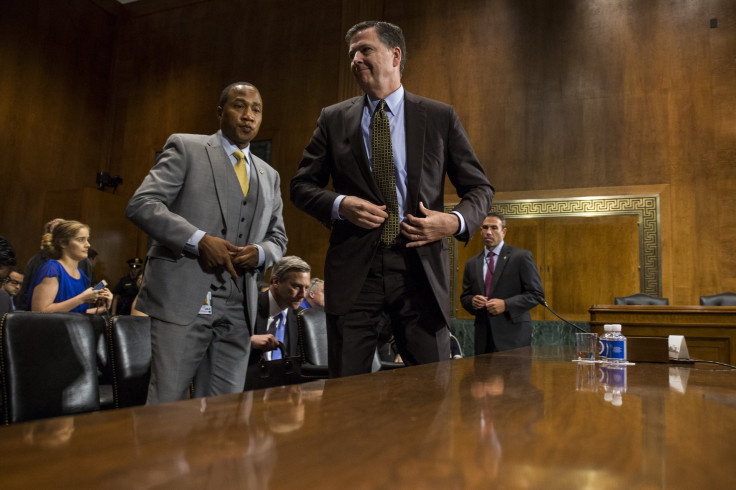What Is Executive Privilege? Trump Will Not Assert Power To Stop James Comey From Testifying

President Donald Trump will not invoke executive privilege to block former FBI director James Comey from testifying Thursday in Capitol Hill, Washington, D.C., White House officials said Monday.
During the White House briefing Monday, spokeswoman Sarah Huckabee Sanders said that the president would not assert the privilege in order to stop Comey’s testimony.
“The President's power to assert executive privilege is well-established. However, in order to facilitate a swift and thorough examination of the facts sought by the Senate intelligence committee, Trump will not assert executive privilege regarding James Comey's scheduled testimony,” Sanders said during the briefing.
Executive privilege is a presidential power or a privilege provided to the president that insists on the idea that the commander-in-chief should be able to enjoy honest and confidential conversations with his aides and advisers.
“The privilege that allows the president and other high officials of the executive branch to keep certain communications private if disclosing those communications would disrupt the functions or decision-making processes of the executive branch. As demonstrated by the Watergate hearings, this privilege does not extend to information germane to a criminal investigation,” the law on executive privilege states.
The Supreme Court first recognized this power in a 1974 case in which former President Richard M. Nixon had to disclose tapes of his Oval Office conversations to the Watergate prosecutor.
However, there has also been a debate as to whether Trump can use this power because the president has already undermined his ability to invoke the privilege by publicly discussing his dealings through tweets and interviews with the former FBI director.
Comey is scheduled to appear before the Senate Intelligence Committee Thursday to testify about the events that led to his sudden dismissal last month. Trump fired Comey on May 9 in the midst of leading an investigation into the Russian links to Trump’s campaign associates during the 2016 presidential election. Lawmakers are looking forward to the testimony as a New York Times article in May alleged that the president had asked Comey to discontinue his investigation into former National Security Adviser Michael T. Flynn, who was fired for having alleged ties with Russian officials.
Chairman of the Senate Select Committee Richard Burr and Vice Chairman Mark Warner said in a statement May that Comey’s testimony “will help answer some of the questions that have arisen since Comey was so suddenly dismissed by the president.”
“The committee looks forward to receiving testimony from the former director on his role in the development of the intelligence community assessment on Russian interference in the 2016 U.S. election, and I am hopeful that he will clarify for the American people recent events that have been broadly reported in the media,” Burr said in the statement.
Justice Department also appointed Robert Mueller as special counsel May 17 to oversee the investigation into the alleged Russian meddling in the 2016 presidential election. The 72-year-old attorney was a former FBI director before Comey. The decision to appoint a special counsel came after the huge turmoil in the administration regarding Comey’s sudden dismissal by the president.
© Copyright IBTimes 2025. All rights reserved.






















